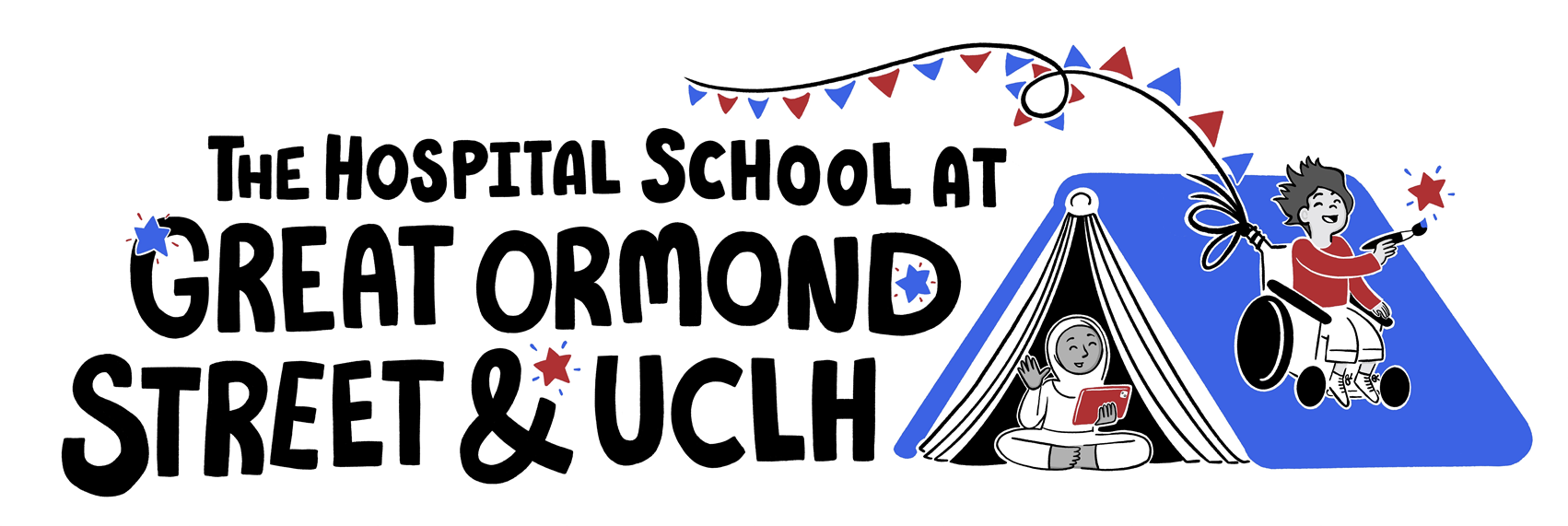Our Curriculum
Curriculum
Our curriculum is planned and delivered in line with our school’s core aims of ‘Achievement, Continuity & Enjoyment’ as well as being informed by the UN Convention on the Rights of the Child and Great Ormond Street Hospital’s own mission statement - ‘The Child First and Always’.
UN Convention on the Rights of the Child, Article 28: You have the right to a good quality education. You should be encouraged to go to school to the highest level you can.
We work both within and beyond the framework of the National Curriculum and plan closely with teachers in pupils’ home schools to ensure that learning is an integral part of pupils’ admissions and that stress around falling behind is minimised. We help pupils to continue to make progress in core subjects, whilst also encouraging understanding and appreciation of the arts, humanities and technology and developing their spiritual, moral, cultural and social education. We also mark national events and celebrations that would be familiar features of pupils’ home school calendars.
Personalisation and child-centred learning
We believe that maintaining an interest in learning and being motivated to achieve educational goals is a key part of recovery and we are committed to personalising the curriculum in response to pupils’ individual needs and interests.
Keeping up with work from their home school is very important for many pupils. For others, who may have been out of education for some time, our own hospital school curriculum is the best starting point. Often, a blend of the home school and hospital school curricula is ideal; this supports successful re-integration post-discharge and also allows pupils to feel included in the hospital school community during their stay.
Enrichment
For our pupils, who may not have the opportunity to leave the hospital building for weeks or months at a time, we aim to bring the outside world into our lessons. We have developed partnerships with visiting artists and specialist practitioners from local museums, galleries and organisations including Singing Hands, Chance 2 Shine, National Portrait Gallery, The Philosophy Foundation, Chefs Adopt a School, All Dogs Matter, and many more.
Pupils who are able to leave the hospital site can take part in school visits to local, accessible museums and galleries which offer excellent educational programmes and include The Dickens Museum, October Gallery, The British Museum and The Transport Museum.
Innovative Technologies
Technology is integral to our teaching and we use augmentative communication technology with those pupils who would benefit from using communication aids.
We have a secure online Google+ school community where pupils can share their achievements, work on challenges together, give and receive feedback on work and take part in school wide events and competitions. Access to this community is particularly important for pupils in isolation as it facilitates peer-to-peer contact, collaboration and inclusion.
Remotely linking isolated pupils on wards with lessons that are taking place in the school room is another way that we use technology to support learning and organising a Zoom meeting with a pupil’s home school teacher or class is a great way to maintain contact.
Pupils have access to the latest technological equipment and software. This facilitates learning which might include:
- Developing awareness and understanding of cause and effect
- Coding and programming
- Making and recording music
- Producing and editing imagery
- Accessing apps and online resources including: home school learning platforms and revision materials
Inclusion
We work with pupils who have come from a wide variety of special and mainstream educational settings. We also work with those who are homeschooled, currently not in education, or who may not yet have had the opportunity to begin their education. We teach pupils for whom English is not the first language and also those at the earliest stages of language development. We include the views of the child, their families, other education professionals and hospital teams to craft a bespoke and personalised curriculum for each child.
UN Convention on the Rights of the Child, Article 23: You have the right to special education and care if you have a disability … so that you can live a full life.
